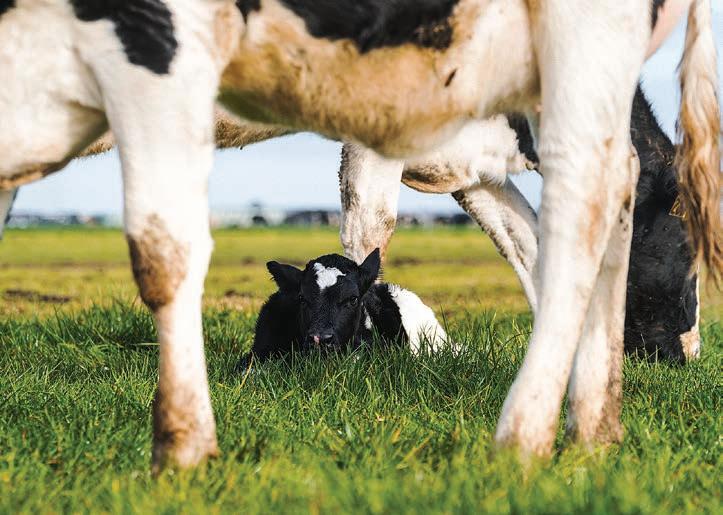
2 minute read
Mineral deficiency and empty rates
By Chris Balemi
The problem isn’t getting the old girls pregnant, it’s keeping them in-calf – and that’s where mineral supplements come in.
The challenge is not getting them in-calf. It is keeping them in-calf.
As the productive levels of dairy herds have kept climbing over the last 20 years, empty rates seem to have increased at a similar rate.
Factors outside our control play a big part in early pregnancy termination, but research in this area clearly shows mineral deficiency can be directly related to early pregnancy termination in dairy cows.
Successfully carrying the foetus through to full term is quite a balancing act. Maintaining a successful pregnancy requires the correct level of energy, protein, as well as a quality source of carbohydrate. In the case of a ruminant, this means good quality fibre.
Also required is a correctly balanced ratio of minerals and vitamins. These are all critical factors in maintaining the very tightly balanced ratio of hormones required in early pregnancy.
Results from a 2017 study show the levels of mineral deficiency in dairy cows may be directly related to the severity of the reproductive issues experienced. This trial data presents a strong correlation between higher daily milk yield and lower blood serum mineral levels in problem cows.
Generally speaking, while energy and protein levels of pasture may improve as the season progresses, mineral levels in lush green spring pasture are often very low and can reach their lowest level in the spring to early summer months.
Early in the above study, certain minerals were identified as being essential to a successful pregnancy. These are calcium, phosphorus, and magnesium (macro minerals), and zinc, copper, manganese, selenium and iodine (micro minerals).
Macro minerals (those that are required in larger volumes) are essential for energy metabolism, blood flow both in utero and in the developing foetus, as well as for bone marrow and tissue development.
Recent research related to calcium indicates that this element may play an important role in maintaining a successful pregnancy. The correct balance of macro elements, trace elements, and vitamins is important in the maintenance of healthy enzymes, hormones, and in the synthesis of those essential vitamins that cows are so good at producing in the digestive process.
Increasing empty rates can present a serious economic effect for farmers, and much research is being carried out to identify the causes of this very costly issue.
To date, research shows that conception is easy to achieve – most cows will conceive on their first service. The real challenge is ensuring the cow receives adequate nutrition in order to maintain this initial pregnancy.
A major New Zealand study showed over 85% of cows inseminated will become pregnant on the first round, but only 62% of these cows will remain pregnant past the first 70 days due to early embryo loss.
While these cows will likely conceive on second or third round mattings, this missed opportunity is increasing the calving spread, costing production, and increasing cull rates.
We can’t take it for granted that our cows are receiving the correct balance of minerals in their feeds. Testing of feeds shows that no single feed comes close to being balanced or supplying all minerals adequate to the needs of lactation, let alone pregnancy.
In fact, modern highly productive grasses are often worse than older, slower growing grass cultivars when it comes to mineral balance, before taking into account depleted soils and regional deficiencies.
Also, each crop has inherent deficiencies, and many contain anti-nutrients (naturally occurring toxins) that can induce mineral deficiencies.
Given the stresses inherent in modern dairying, a combination of high energy feed, adequate fibre, and a finely balanced mineral supplementation programme is critical in maintaining first-round pregnancies and reducing your farm’s empty rates.









